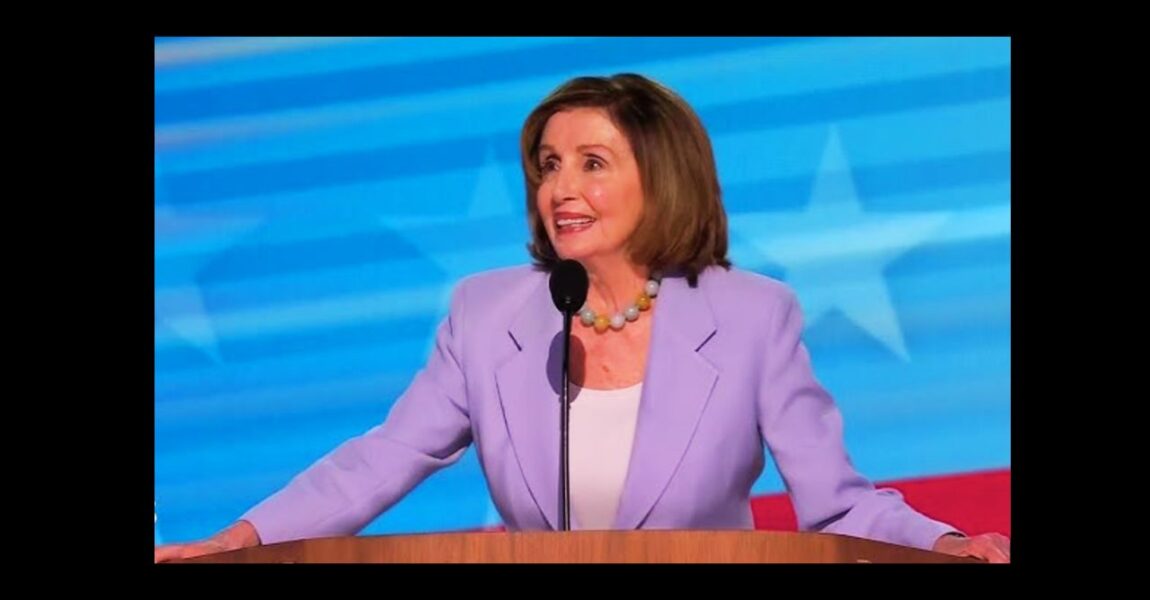
As a nation, we are approaching a time that is sure to be turbulent. Before we know it, the lines will be swirling around the corners of designated voting locations. The tone being set is one that we have never seen before, with the rapidly advancing power of AI and former President Trump posting artificially generated images of Taylor Swift urging voters to “Vote for Trump.” The Democrats are engaging in equally laughable shenanigans, with Megan Thee Stallion twerking at a Harris/Walz rally at Georgia State University three weeks ago. Our third choice is far from a saving grace. The nation was informed that running libertarian candidate RFK Jr. dumped a bear carcass in Central Park. This only adds to the notion that he is an unfit fringe crazy person who has no business playing in politics. As of now, we all feel like we fell out of a coconut tree, and it is indeed “a little weird.”
With the Democratic National Convention underway, Harris is continuing to build her “girl boss” image. Appealing to many young people, the boastful comments coming from the MAGA wing that were plentiful before President Biden dropped out of the running are becoming more sparse. On Wednesday night, Nancy Pelosi briefly spoke about Kamala Harris. The former Speaker of the U.S. House of Representatives mentioned something that is nearly inescapable when it comes to politics in this country. Even with the Harris campaign utilizing influencers who are far from holy to appeal to younger voters, the issue of faith is not absent from this year’s DNC. CNN reported that the convention invited about 200 content creators. Two of those creators are Ash and Grant also known by their online handle (@a_twink_and_a_redhead).
Grant from the TikTok viral duo told reporter John Berman, “We’re just making some silly videos. Looking hot. Hoping to get young people out to vote.” While I have been following the internet-famous pair since spring for their skits and catchy public acts, bringing them on to convince people to vote for Harris is painfully unserious.
I am not a Debbie Downer when it comes to integrating joy into our political processes, but two who sang, “I got f*cked in a TJ Maxx, in between the racks, right in the back…” are certainly impractical and goofy. Possibly, inviting such unorthodox figures who resonate with the hedonistic fancies of the younger generation was intended to balance out the recurring theme of religious appeal and special pleading.
In her short speech, Pelosi said, “I’ve known Kamala Harris for decades. … I know her as a person of deep faith, which is reflected in her community care and service.” This comment appeals to the long-established misconception that with religious faith comes service. While in some cases good behavior and charity can be inspired by religious beliefs, doing good for others is completely possible, reasonable, and common among the godless. There is a popular fallacy that religious thinking is the petrol in the tank of good citizenship and service. However, this is untrue. According to a 2017 Gallup poll, there is little difference in the amount given between atheists versus Protestants and Catholics who give to charity. Atheists and non-religious people are not any less human, thoughtful, or giving than the religious, but it is important to consider the environments where charity is done.
As of 2022, Americans gave $499.33 billion to charity in total. Twenty-seven percent of that charity went to religious organizations. Research suggests that 73% of charity in the U.S. goes to religious organizations. Churches, synagogues, and faith centers are not particularly welcoming or ideologically neutral places for non-religious people. With 40% of America’s top 50 charities being faith-based, atheists have fewer local options for community service and charitable giving. Evaluating the intentions of those who give is also noteworthy. With churches suggesting and frequently pressuring attendees to tithe, it makes plenty of sense when the religious donate—they are systemically and socially pressured. The Church of Jesus Christ of Latter-Day Saints considers it to be the law of God’s children, and the Seventh-Day Adventists require it. Those two churches alone account for nearly 10 million members in the U.S.
Creating religiously neutral environments for those without faith to partake in charity alongside those who are religious can help break the stigma that religious people are inherently more trustworthy and generous.
Pelosi applauded Harris’s “strength and wisdom” in policy struggles, like those regarding abortion rights. For the betterment of our nation, it is imperative that we separate the virtues of strength and wisdom from religiosity. Religiosity is a broad umbrella. Many people who stand under that umbrella are kind and do not seek to instill biblical literalism or theocracy. However, detaching goodness and integrity from god belief should be recognized as a next step in progress. When analyzed, it’s evident that clear thinking and believing things without sufficient evidence—aka faith—is, in fact, not a virtue! To keep politics fair and balanced, religious impartiality must be acknowledged as critical.
Whoever you vote for, make your choice based on evidence, reason, and logic. Don’t make your political decisions on the whim of faith. That is true strength and wisdom.
To support our mission to normalize atheism and preserve free thinking, sign up for our newsletter or join us as a member.
Emma Muniz is the Editorial Assistant at Atheists for Liberty and a high school student based in New York City.